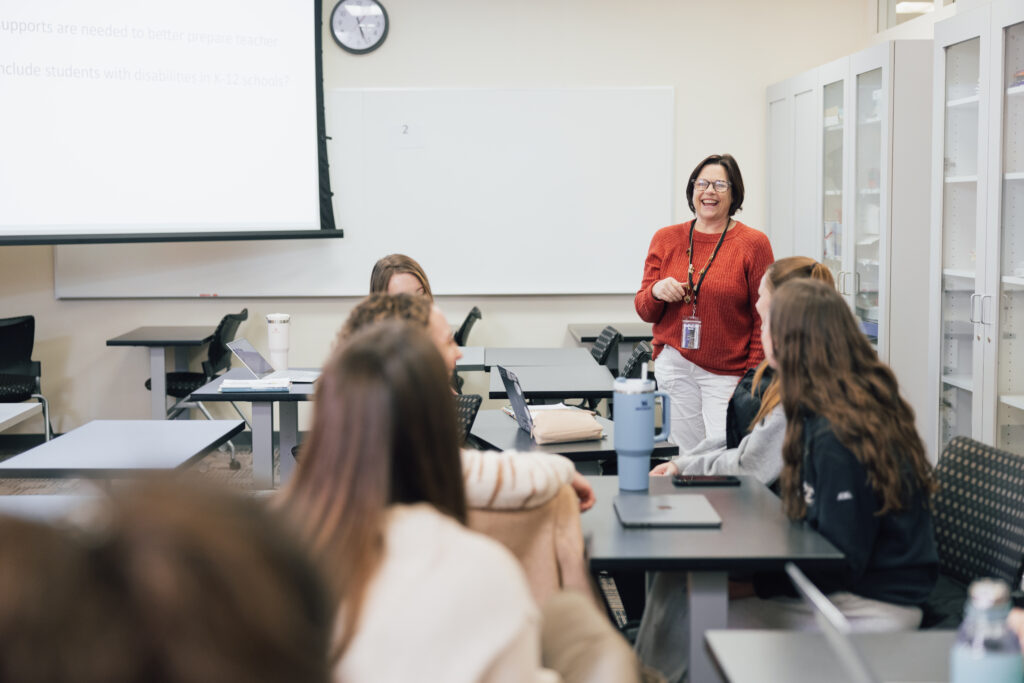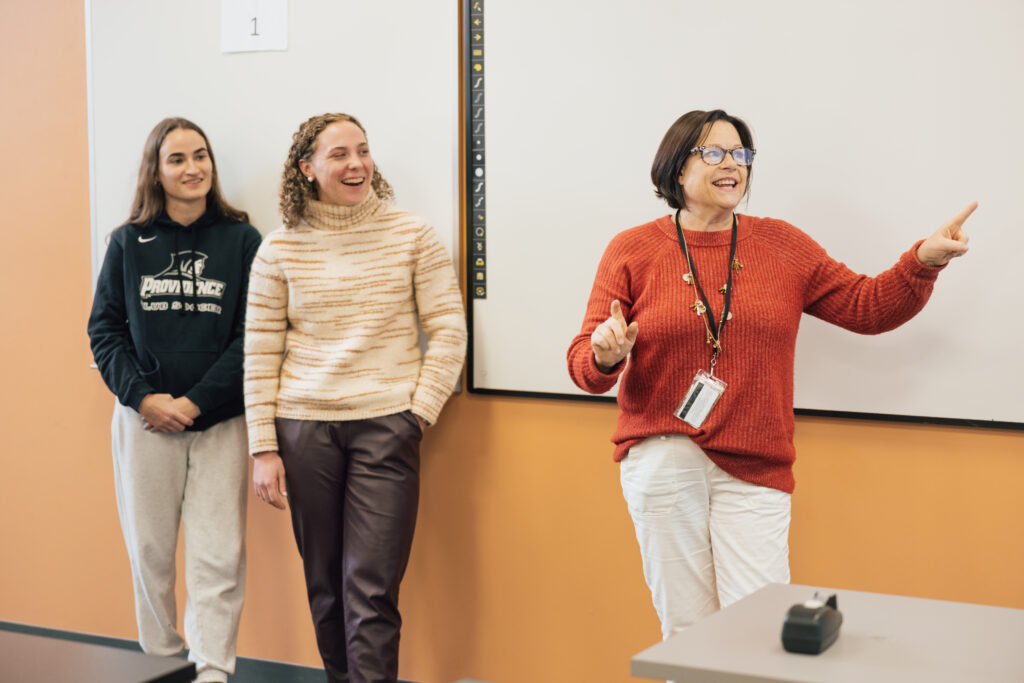Teacher Certification Program
Turn your dream of becoming a secondary school teacher into reality with this part-time program
The Teacher Certification Program prepares candidates to teach biology, chemistry, English, mathematics, physics, or social studies and to achieve full (initial) certification at the secondary level (grades 7 to 12). Approved by the Rhode Island Department of Education, your certification can also be used (through reciprocity) to achieve certification/licensure in at least 45 other U.S. States.
By the Numbers
45
states in which this credential may be used to achieve certification/licensure
60
hours of clinical experience in a secondary classroom prior to student teaching
6
transfer credits may be applied*
*excluding the final student teaching experience

This is a post-baccalaureate program designed for working adults. Its six instructional courses may be completed on a part-time basis followed by completion of a full-time, 12-week classroom experience as the final requirement. Students must have completed a bachelor’s degree or the equivalent (30+ credits) in their intended teaching subject.
Other highlights of the Teacher Certification Program (TCP) include:
- Instruction provided by current and former teachers, principals and superintendents
- Courses offered year-round in the evenings (online and on campus)
- 60 hours of field experience gained during the pursuit of regular coursework
- Small classes with other motivated adult learners
Upon completion, students will be competent in integrating Rhode Island Professional Teachers Standards within their teaching practice. They’ll also be eligible for certification upon successful completion of student teaching and the Principles of Learning and Teaching Praxis test for grades 7-12 (including a passing score on the appropriate Praxis content area test).
Coursework
Instructional courses are offered in the late afternoons or evenings and may be completed through a combination of on-campus and online settings. Availability of online courses will vary semester to semester. Note: This program requires 60 hours of field experience in school settings prior to the culmination of a student teaching experience. Students will work with our Placement Director to arrange these clinical experiences around their work schedules.
EDU 201: Educational Psychology (3 credits)
Study of those facts and principles of psychology that will assist the students in formulating and clarifying objectives as classroom teachers. Deals with such matters as cognitive development, motivation, retention, problem solving, and the social and emotional problems involved in personality integration.
EDU 207: Principles of Secondary Education (3 credits)
This initial secondary education course introduces the concepts and practices of teaching. Students will learn to develop lesson and unit plans, practice teaching techniques and explore the roles of classroom management.
EDU 304: The Child with Special Needs in the Regular Classroom (3 credits)
Designed to provide prospective teachers with the skills, knowledge, and attitudes required to identify students with special needs and to work with support staff in meeting the students’ needs within the general curriculum. Focuses on understanding the characteristics of these students and on developing sensitivity to their needs within a least restrictive environment.
EDU 402: Educational Measurement (3 credits)
Designed to introduce students to the theory and practice of measurement including the construction, application, and interpretation of standardized and teacher-made tests used to inform teaching and curriculum decision making. Students will also examine alternative assessments including authentic and portfolio assessments.
EDU 404: Reading in the Content Area (3 credits)
Course investigates the use of specific strategies to incorporate into the teaching of content subjects. Research relating to reading skills taught in content areas is reviewed. Texts and research material address content in grades 5 through 12. Cooperative learning model is utilized in course. Model and exemplary programs in use in local school districts are examined.
EDU 410: General Methods (3 credits)
Course provides the student with the opportunity to develop skills in the teaching process. Emphasis is on the practical aspects of the teaching methodology. Attention is given to individual needs in the content area. Students will register for the English/Social Studies or Math/Science section.
EDU 455: Student Teaching in the Secondary School (9 credits)
Student teaching is a full-time, 12-week experience in classroom in grades 7-12, which is often completed in one of our partner schools. It is the final requirement in the Teacher Certification Program. The Clinical Educator (host teacher) and a Providence College faculty member provide supervision and feedback throughout the experience. Weekly seminars are conducted by the faculty member, as well.
Related programs that may be of interest:
- Teacher Certification combined with a Master of Education in Urban Teaching
- Teacher Certification combined with a Master of Education in Mathematics
- Teacher Certification combined with a Bachelor’s degree – If you haven’t yet earned a bachelor’s degree, you may be eligible to earn the degree and then apply into the TCP. Our advisers can help you determine which degree program would best suit your needs and goals. Students are permitted to take the first two education courses while working on their bachelor’s degree.
Stories

You can Become a Teacher Without an Education Degree – Here’s How
If you’re passionate about becoming a teacher but lack a degree in education, a teaching certification program is your best option. 10 Questions answered.
Faculty Spotlight
Jeffrey Guiot
Professor Guiot offers a nearly 20-year career in education, both as a teacher and now as an administrator. He is currently the Assistant Principal of Woonsocket High School. In the evenings, he teaches EDU 207 (Principles of Secondary Education).






